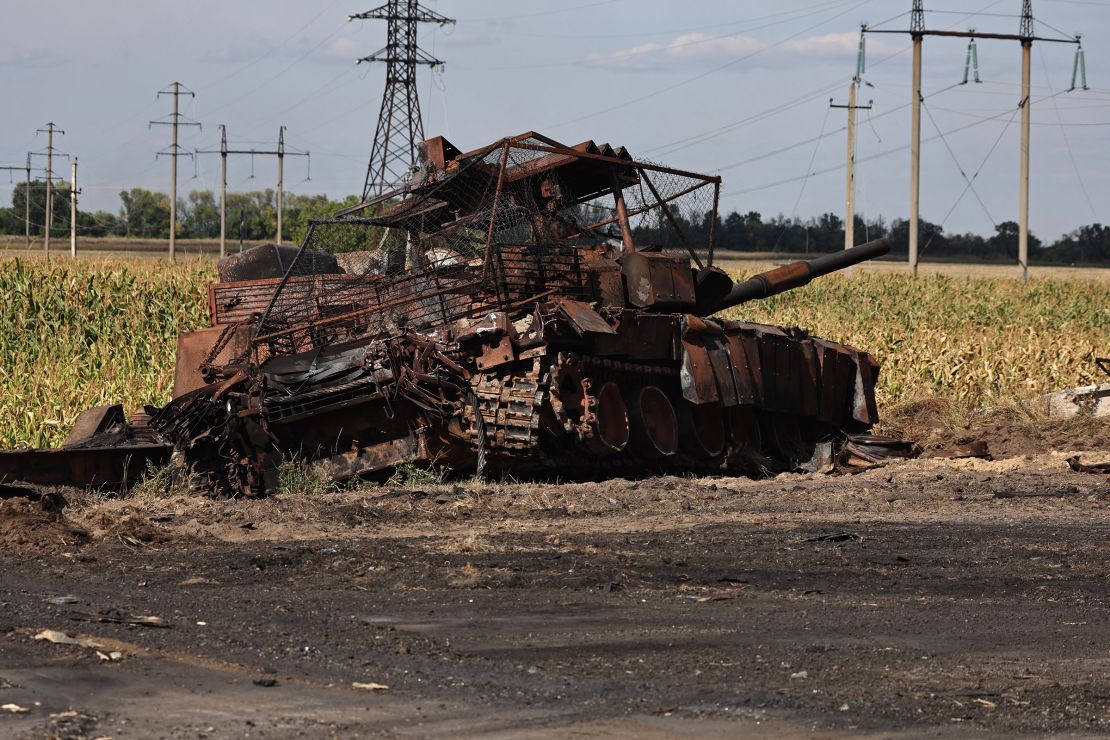Serene
Active member
Russia’s President Vladimir Putin likes to project himself as a strongman. But his track record of handling recent crises in Russia reveals a different side of his presidential persona: one of paralysis and indecision.
A day and a half after Ukrainian troops stormed a Russian border crossing and continued, almost unimpeded, across the wide green fields of the southern Kursk region, Putin finally made his first public remarks on the matter. He called the incursion a “massive provocation”, accused Ukraine of indiscriminately firing on civilians, and then moved on quickly to other government business, including how to mark Russia’s “Construction Worker’s Day.”
It would take another five days, and the loss of nearly 30 settlements, before he promised a military response. There was no visit to the region to meet the tens of thousands of evacuees, no declaration of martial law.
In March, after the terror attack at the Crocus City concert hall in Moscow, Russia’s deadliest in decades, it took Putin more than 24 hours to address the nation. Despite a claim of responsibility from ISIS-K, he continued to insist that Ukraine, and the West had played a role. The US had in fact warned Russia an attack could be imminent. Putin never visited the site of the attack, or survivors in hospital.
When Evgeny Prigozhin, then the leader of the Wagner mercenary group, launched his aborted mutiny last June, the Russian leader’s response was marked by inconsistency. After initially slamming the incident as “treachery,” Putin left it two days before speaking publicly again, at which point he thanked the Wagner troops involved for standing down, and offered them military contracts. Then he invited Prigozhin to tea at the Kremlin. Two months later Prigozhin was killed in a mysterious plane crash in Russia.

A destroyed Russian tank sits outside the Ukrainian-controlled Russian town of Sudzha, Kursk region, on August 16, 2024, 10 days after Kyiv launched a major cross-border counteroffensive.
Yan Dobronosov/AFP/Getty Images
More distant parallels are also easy to find, and Putin chose this week to highlight one himself. For the first time in 16 years he visited School No.1 in Beslan, more than a week before the 20th anniversary of the terror attack on the school that killed more than 300 people, many of them children. In 2017 the European Court of Human Rights found that not only had the Russian authorities failed to act on prior knowledge of an imminent attack, but that the security operation was “disorganized and suffered from a lack of leadership.”
“He is not good at resolving crises,” Boris Bondarev, a former Russian diplomat who resigned two years ago in protest over the war in Ukraine, and is still living outside Russia, told CNN. “It’s risky, it’s not predictable. Putin likes comfort, he likes it when he is making the crisis for others, when he controls the situation.”
A day and a half after Ukrainian troops stormed a Russian border crossing and continued, almost unimpeded, across the wide green fields of the southern Kursk region, Putin finally made his first public remarks on the matter. He called the incursion a “massive provocation”, accused Ukraine of indiscriminately firing on civilians, and then moved on quickly to other government business, including how to mark Russia’s “Construction Worker’s Day.”
It would take another five days, and the loss of nearly 30 settlements, before he promised a military response. There was no visit to the region to meet the tens of thousands of evacuees, no declaration of martial law.
In March, after the terror attack at the Crocus City concert hall in Moscow, Russia’s deadliest in decades, it took Putin more than 24 hours to address the nation. Despite a claim of responsibility from ISIS-K, he continued to insist that Ukraine, and the West had played a role. The US had in fact warned Russia an attack could be imminent. Putin never visited the site of the attack, or survivors in hospital.
When Evgeny Prigozhin, then the leader of the Wagner mercenary group, launched his aborted mutiny last June, the Russian leader’s response was marked by inconsistency. After initially slamming the incident as “treachery,” Putin left it two days before speaking publicly again, at which point he thanked the Wagner troops involved for standing down, and offered them military contracts. Then he invited Prigozhin to tea at the Kremlin. Two months later Prigozhin was killed in a mysterious plane crash in Russia.

A destroyed Russian tank sits outside the Ukrainian-controlled Russian town of Sudzha, Kursk region, on August 16, 2024, 10 days after Kyiv launched a major cross-border counteroffensive.
Yan Dobronosov/AFP/Getty Images
More distant parallels are also easy to find, and Putin chose this week to highlight one himself. For the first time in 16 years he visited School No.1 in Beslan, more than a week before the 20th anniversary of the terror attack on the school that killed more than 300 people, many of them children. In 2017 the European Court of Human Rights found that not only had the Russian authorities failed to act on prior knowledge of an imminent attack, but that the security operation was “disorganized and suffered from a lack of leadership.”
“He is not good at resolving crises,” Boris Bondarev, a former Russian diplomat who resigned two years ago in protest over the war in Ukraine, and is still living outside Russia, told CNN. “It’s risky, it’s not predictable. Putin likes comfort, he likes it when he is making the crisis for others, when he controls the situation.”